'They were attacking the press'
Daniel Blanco
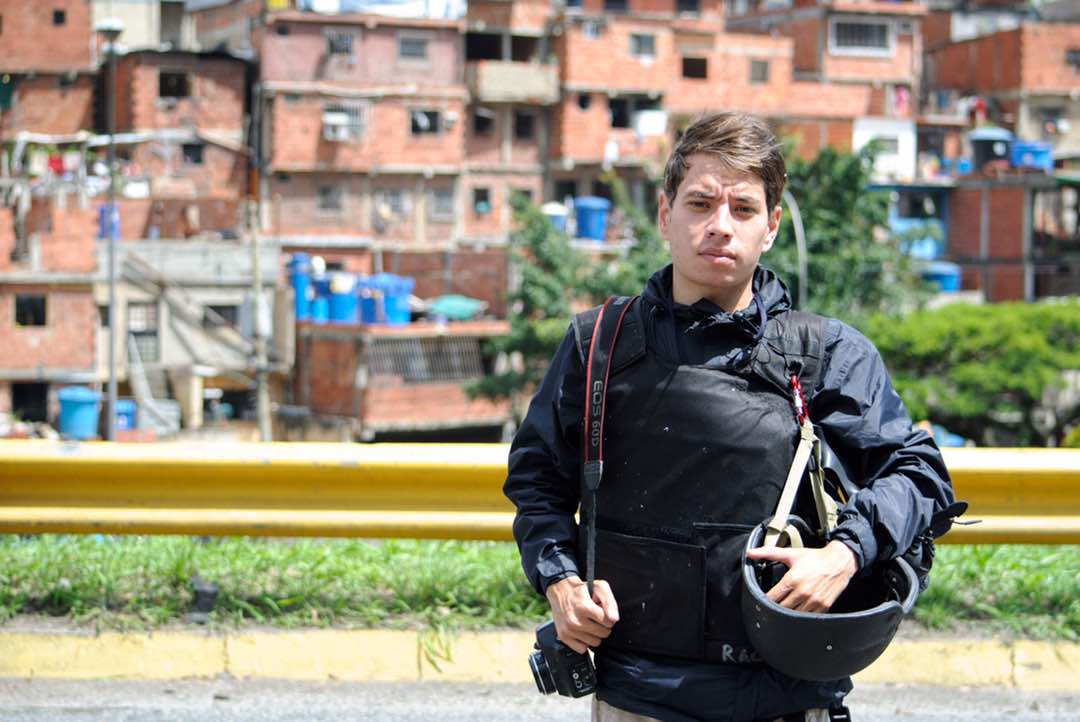
Daniel Blanco is only 26 but bears the scars of a veteran reporter.
During his five years as a journalist in Venezuela, he became used to the deafening sound of guns and the never-ending violence. He became used to dangerous situations.
However, in 2017, Venezuela's war on the press reached unprecedented levels. Journalists were being targeted, arrested and disappearing at an increased rate. Daniel was targeted too.
In July of the same year, while covering a protest in Caracas, Daniel was shot in the head by government forces.
After making a full recovery, he knew that his life would continue to be at risk if he stayed in Venezuela. He had to leave his country. Again.
"I had to leave because of security reasons. They were 'sweeping' (wiping out) the press".
"I had to leave because of security reasons. They were 'sweeping' (wiping out) the press".
Daniel began his journalism career covering crime. At only 21, he was constantly embedded with policemen in the delinquency-ridden city of Caracas. The country was deep in crisis and crime, on the rise.
“The first time (reporting) everyone feels afraid, I was never exposed to that kind of situation before, of extreme violence”, he says remembering his first days on the job, “I was in shootouts where there were bombs, long-range weapons, but nothing ever happened to me”.
While reporting, Daniel became close with the group of parapolice men. At that time, he thought that they were doing some sort of good for the country, but as the years passed, he realized that couldn’t be any further from the truth.
“That task (para-policing) degenerated. Now the FAES group (parapolice group) is one of the groups with more extrajudicial executions in the world”.
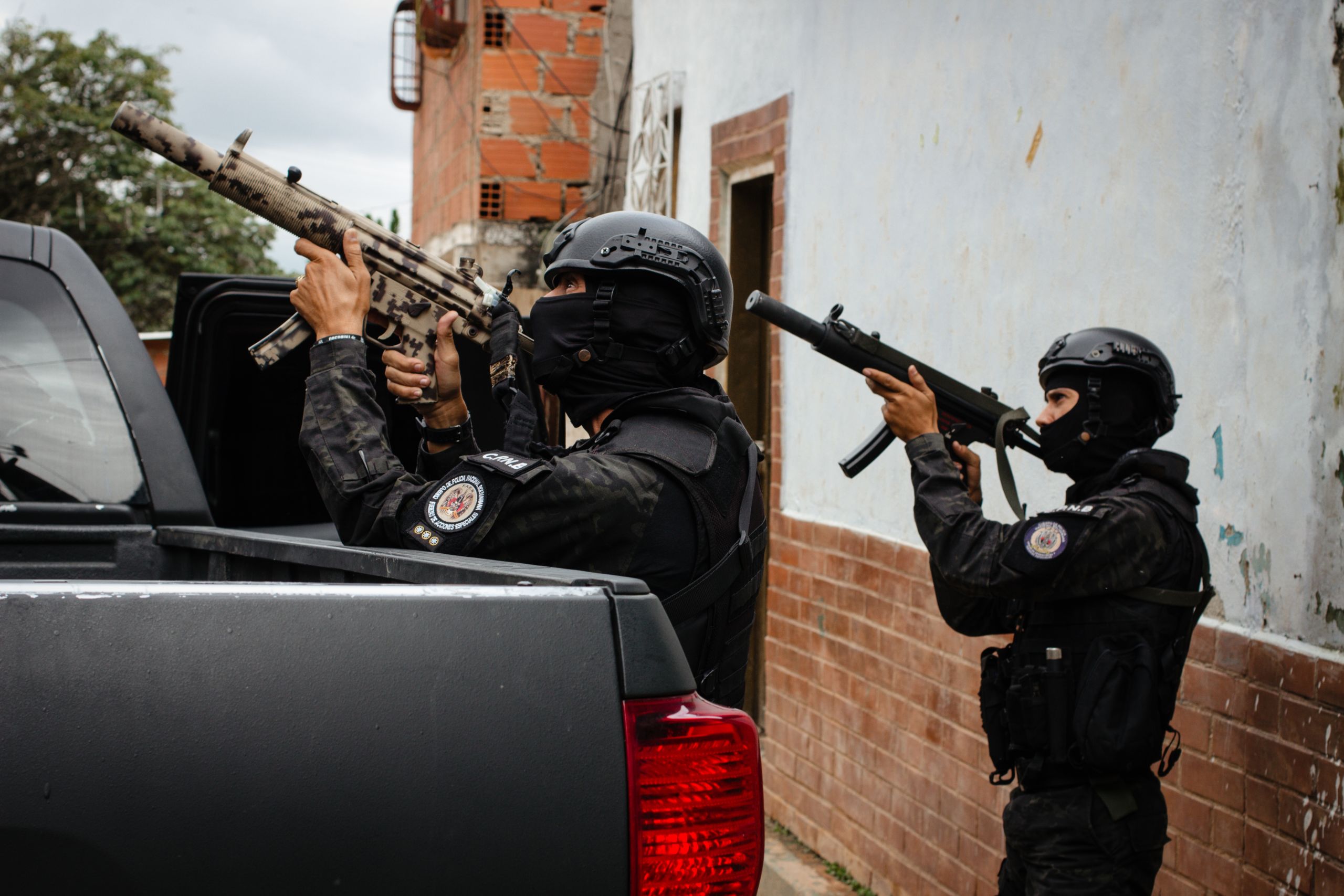
The FAES group / Picture: Daniel Blanco
The FAES group / Picture: Daniel Blanco
Shortly after beginning to cover crime, Daniel started reporting the protests in Venezuela. He had been part of the protests in the past and even though he was now a member of the press, he continued to protest against Hugo Chavez and Nicolas Maduro.
As the years went by, he built an important reputation for himself and held a certain position of power in Caracas. He was collaborating for international outlets and was being paid in foreign currencies.
“If something happened to me, I could solve it quickly. If there was a queue somewhere, I could skip it. I had some power because of the connections I made through journalism and I used it every time I could”.
Nothing could have protected him from what would happen next.
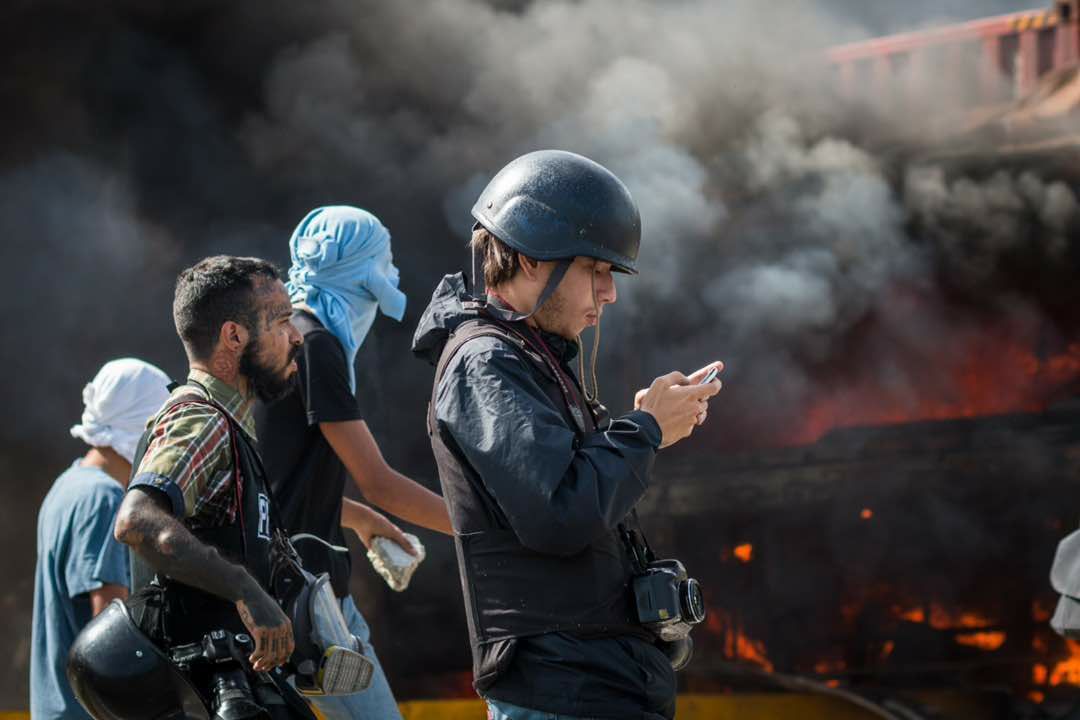
“It was 2016, September, I think. I wanted to play football with my friends and left my house on a Sunday at one, two in the afternoon when I’m ambushed by two people.
"One of them told me ‘give me your phone’. He didn’t seem to be armed with a weapon and I box, I do Muay Thai and MMA so I thought ‘maybe I can just hit him’. So, I did, but it turned out that he was armed. He had a gun under his shirt.
"I was injured in the robbery and spent three months recovering. I had two surgeries and went it all passed my father told me that he had bought me a plane ticket to Peru. He told me ‘you’re coming here in December, there’s no other choice’”.
He remembers how despite all the influence he had, he couldn’t avoid the high levels of crime in his country, “it (power) doesn’t let you get around the lack of safety because at the moment in which you’re going to be robbed, no one cares if you have a press pass on you”.
There wasn’t any power that could keep you safe from a crime-ridden country and in December 2016, Daniel left Venezuela.
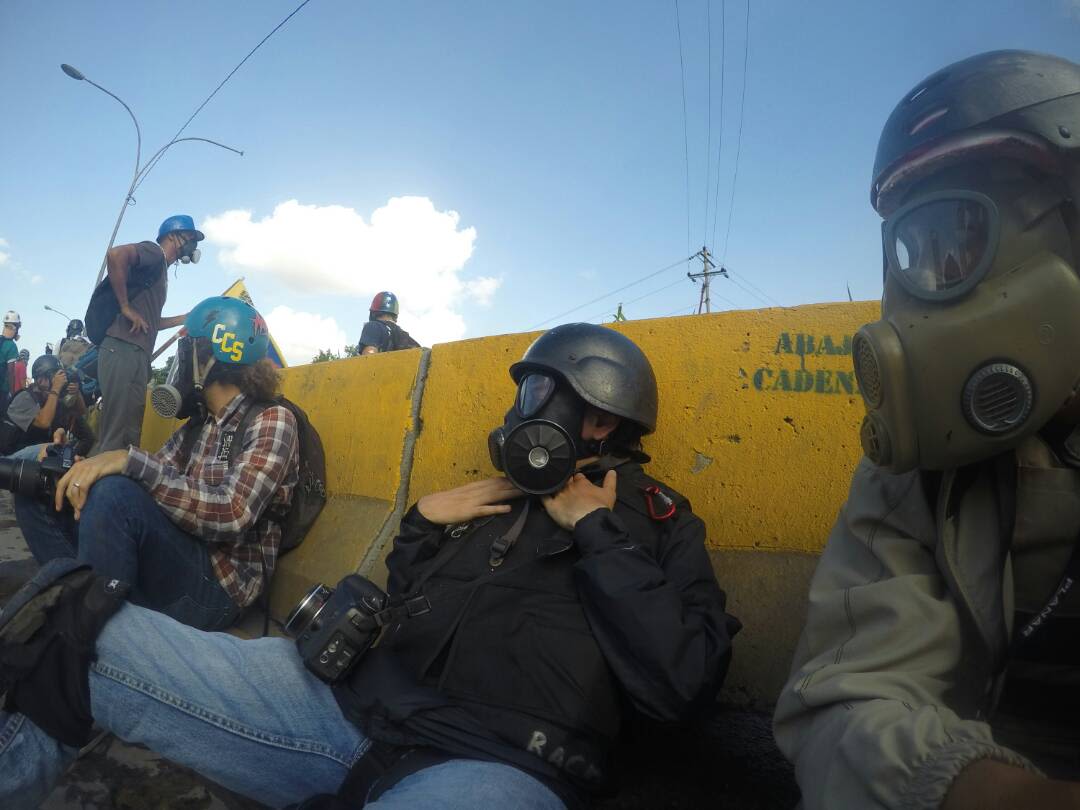
Daniel's father lived in Peru. After getting divorced he moved to Lima, where he lived with his new wife. Daniel moved in with him.
Shortly after arriving, he began to look for a job in the press but found that finding a job as a Venezuelan was harder than what he initially expected.
"It's not the same to look for a job as a Venezuelan two years ago than it is to look for a job now.
"There used to be some respect for us (Venezuelans); there isn't anymore. Saying that you're a Venezuelan now is the same as saying that you're Syrian"
Venezuelans mass immigration to Peru and the awareness of the country's condition limited his access to a good position in a highly competitive market. However, this wouldn't be his only obstacle as the Peruvian media's condition made it even more difficult for him to get a job in the industry.
"The media labour market here (Peru) is quite hard for Peruvians already because of the monopoly that certain power groups have on the press, so imagine how hard it can be for a foreigner that is considered a refugee".
He began to work as a freelance journalist for various news outlets and eventually, found a stable job with the small Peruvian website, Altavoz.

Daniel took this picture while covering the 2017 floods in Peru.
Things seemed a bit better. However, Daniel wanted to go back. Massive protests erupted in Venezuela and he saw an opportunity for his country and for himself. He could work for international outlets in his home country.
There was no doubt in his head. Despite the danger and after only four months, Daniel went back to Venezuela.

Daniel took this picture while covering the 2017 floods in Peru.
Daniel took this picture while covering the 2017 floods in Peru.
"Everyday someone died, everyday there were 20, 30 injured; 70 arbitrary detentions"
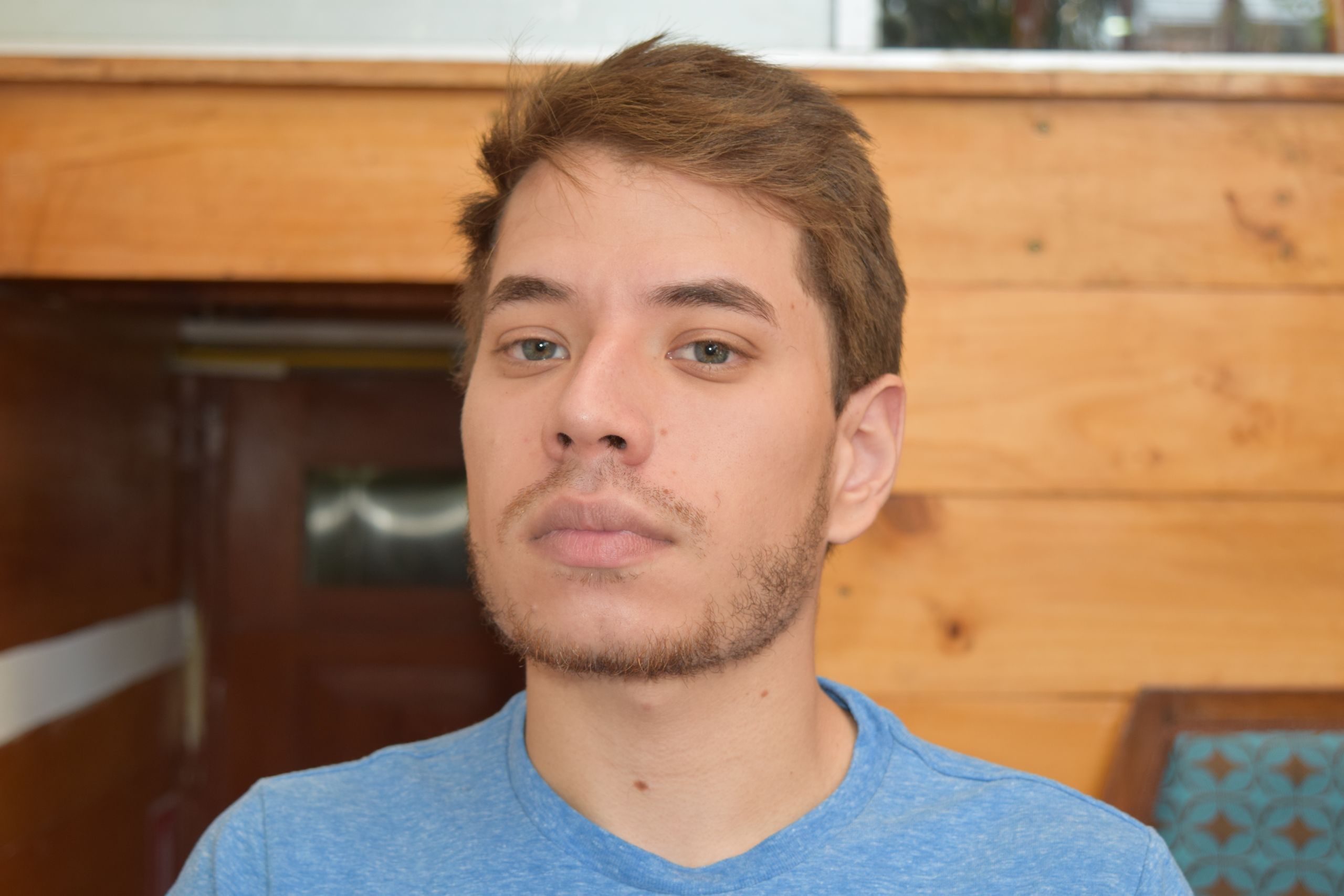
As Daniel returned, the unrest in Venezuela reached an all-time high. On March 27, Venezuela's Supreme Court gave more power to President Maduro and to itself while taking it away from the opposition-controlled National Assembly.
Many analysts called it a 'self-coup'.
For more than two months, hundreds of thousands of people protested every day against the dictatorial regime and demanded new elections.
33 people died in the first month of unrest. It was brutal. Protestors clashed with the government and paramilitary forces.
Journalists became direct targets. According to Venezuela's National Press Workers Union, more than 200 reporters were attacked in the first four months of 2017. Many more were arrested as the censorship laws were tightened.
"All of the reporters that I know in Venezuela, graphic, press or television reporters, all of them have been injured, all of them have had problems with the intelligence service or have been threatened.
"Security forces there (in Venezuela) and the left-wing paramilitary groups, called 'colectivos', have direct orders to target the press"
Daniel returned to a much more dangerous Venezuela than the one he left four months before; especially for journalists. But he would personally discover that a couple of months later.
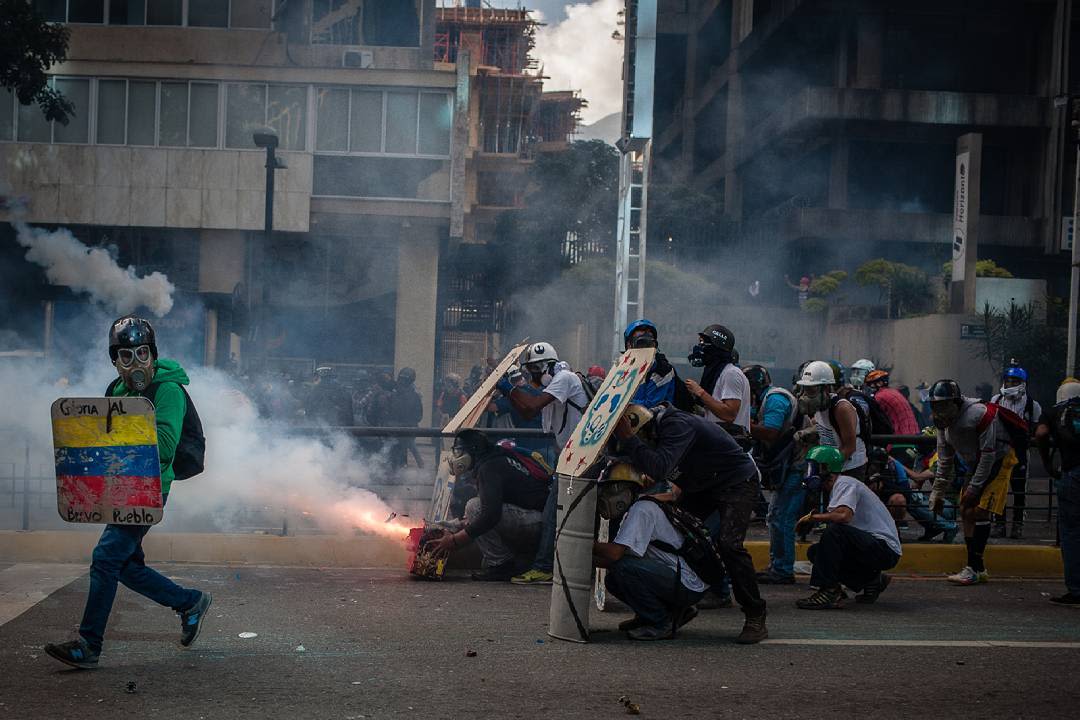
"I thought I was going to die"
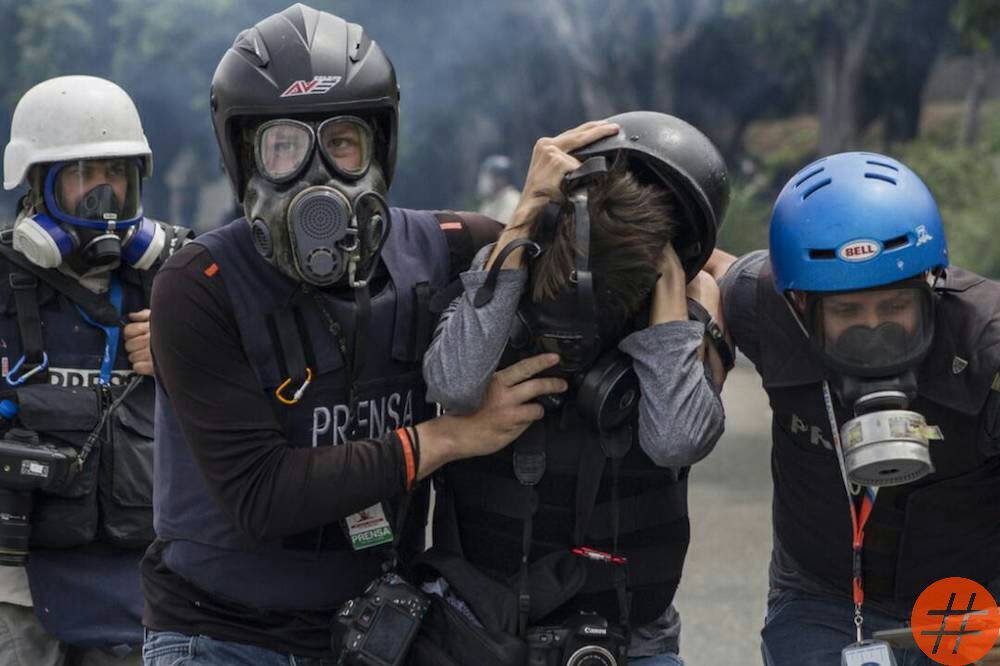
It was the 22nd of July.
Daniel was covering a protest in Caracas. Protestors were marching down a highway to try and get to Venezuela's Supreme Court when they were met by government soldiers. Daniel got in front of the protesters to take pictures of them when a soldier began to move toward him.
"I was taking pictures and I saw a soldier getting closer, and I knew what was going to happen."
Daniel quickly took cover on the ground and got shot from close range in the head.
"I thought that I was going to die because I felt the impact [...] I started to feel that part of my scalp was burning.
"At that moment I assumed, because I had seen other people going through the same, I assumed that I was dead"
Daniel was wounded on the ground, he was bleeding but the same soldier approached him once again; this time to finish him off.
However, one of his colleagues intervened in the last second to prevent it. "It was luck", he says.
Momento fotógrafo de Contrapunto @DanielBlancoPz herido en Caracas, sale de autopista vía Salud Chacao @RaynerPenaR https://t.co/ieJ1n7gLWh pic.twitter.com/da4xx8vhko
— Contrapunto (@contrapuntovzla) July 23, 2017
Daniel was quickly taken to the hospital, where he was told his injury wasn't as serious as he initially thought. He was shot with a shotgun but only one of the pellets had hit him. "If he would have been any closer, he would have blown my head off".
As Daniel said, it was luck.
After recovering from his injury, Daniel continued to be harassed by government forces on the ground. Journalists continued to be attacked and arrested due to the strict censorship laws.
It was an extremely hostile environment for reporters.
Daniel knew he had to leave, again.
"I had to leave because of security reasons. They were 'sweeping' (wiping out) the press."Add a quote source (optional)
"I felt anger", he says, "I felt like I was forced out of the country."
In September 2017, Daniel went back to Peru. He continued to work as a freelancer but again failed to land a job at a major news outlet. 'Venezuelan' became an even more negative tag as thousands more escaped the torn country to relocate in Peruvian soil.
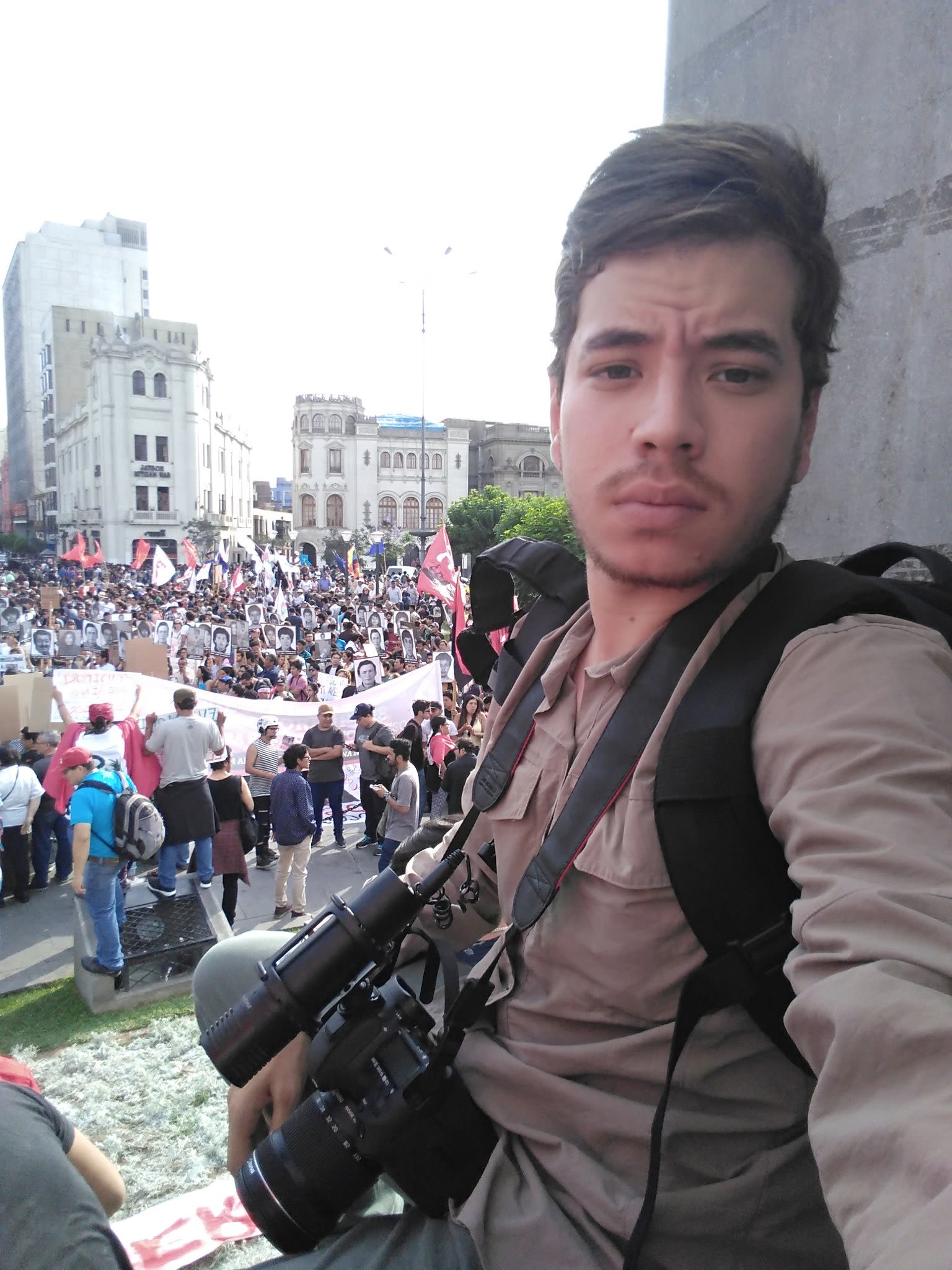
Daniel covering a protest in Peru in 2017.
With no important work possibilities, Daniel plans to leave Peru, once again, in a couple of months. He wants to go somewhere where he can have better job prospects.
He says that many Venezuelans have the same idea. They view Peru as a 'transit stop', where they can earn some money, in their path to Chile or Argentina.
When I asked him if he would go back to Venezuela, he responded 'yes' in a heartbeat. "Most of my friends are there, most of my family is there, my strongest professional links are there".
But says it isn't as simple as that, "I have to make 20, 30 calls before touching Venezuela. I need to make sure that I'm not in any blacklist of any government body.
"It can bring you consequences that go from being stripped from your passport, barred from leaving the country to going to jail on 'military crimes', being killed, disappeared, kidnapped, amongst others".
...
Daniel kept his word and moved to Argentina at the beginning of 2019. That was the last time I heard of him, that was, until a couple of days ago. As I was finishing this page, I received a message from him. He had returned to Venezuela.
Following Juan Guaido's rise to the presidency, Daniel decided to leave his new home in Buenos Aires, after less than a month in the new country.
When I asked him why did he go back to Venezuela he said: "because it was now or never, I want to do my part even if that implies dying here".
Daniel believes it's now or never and that's a feeling shared by many other Venezuelans. There's hope with Guaido.
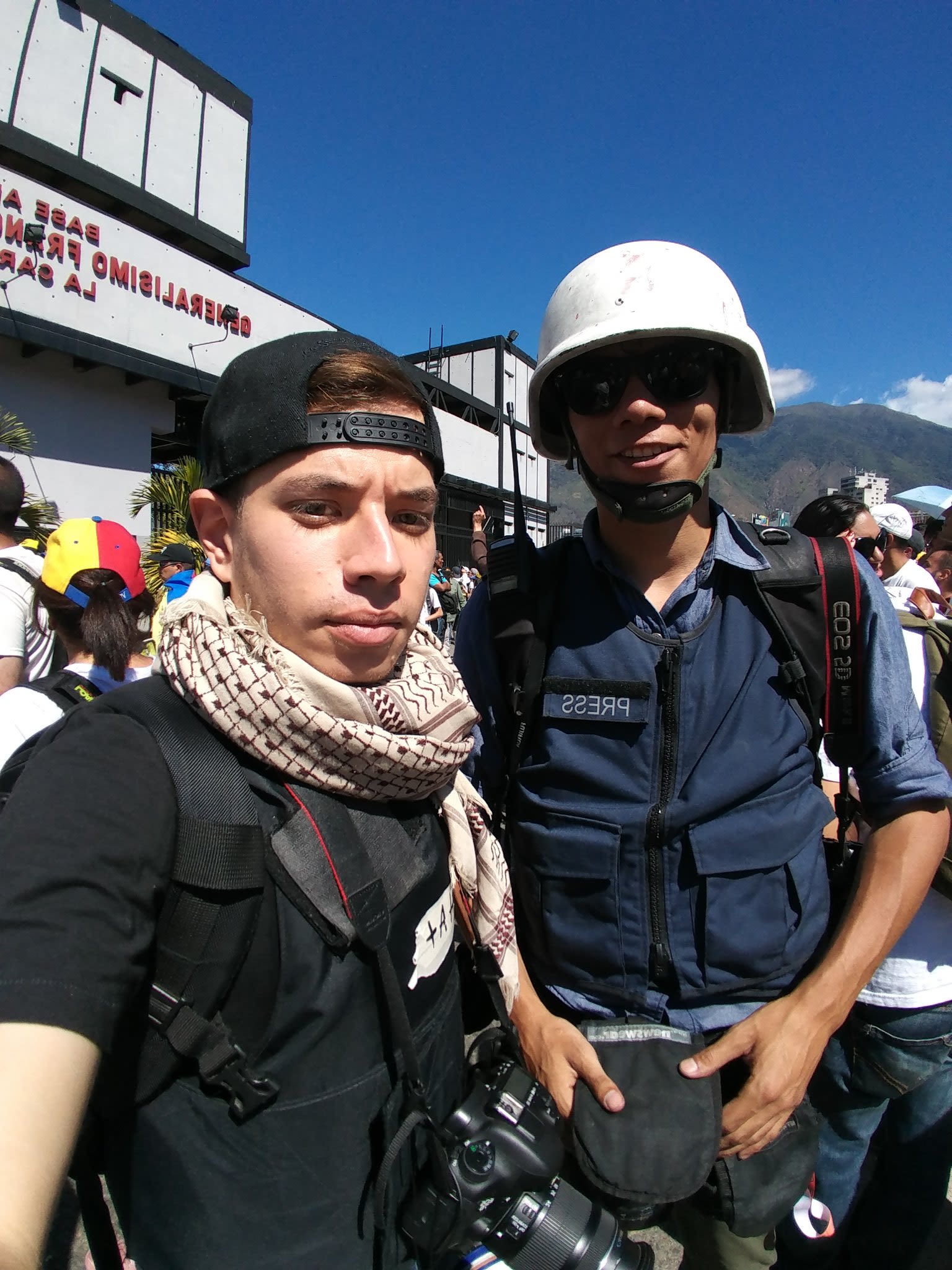
The last picture that Daniel sent me from Venezuela (2019).
Daniel has since started working as a freelancer for international media outlets.

Daniel covering a protest in Peru in 2017.
Daniel covering a protest in Peru in 2017.

The last picture that Daniel sent me from Venezuela (2019).
The last picture that Daniel sent me from Venezuela (2019).

